Prelude:
I am building an application in Ionic 3 which needs to be provisioned with a notification service. Now I am aware of the Push Notification services provided by Ionic Framework however it's the client's requirement to use Oracle Push Cloud Service (formerly Push IO) only. Therefore, I created a custom cordova plugin for Android which receives the notification and passes it to the respective Javascript function and thereafter I want to pass this data to my main module which is in Typescript. Below diagram explains the project structure:
Below is the code for my NotificationReceiver class within my cordova plugin. This class receives the Notification data:
public class NotificationBroadcastReceiver extends BroadcastReceiver {
@Override
public void onReceive(Context context, Intent intent) {
if (intent != null) {
try {
PushIoUtils.sendPushPayload(intent.getStringExtra("alert"));
} catch (Exception e) {
e.printStackTrace();
}
}
}
}
Below is the code for sendPushPayload function of PushIoUtils class within my cordova plugin. This class passes the Notification data from the Receiver to the plugin.js:
public class PushIoUtils extends CordovaPlugin {
public static CordovaWebView gWebView;
public static String notificationCallBack = "pushio.onNotificationReceived";
public void initialize(CordovaInterface cordova, CordovaWebView webView) {
super.initialize(cordova, webView);
gWebView = webView;
Log.d("Yes", "Initializing PushIoPlugin");
}
public boolean execute(String action, JSONArray args, final CallbackContext callbackContext) throws JSONException {
if(action.equals("init")){
PushIOManager pushIOManager = PushIOManager.getInstance(cordova.getActivity().getWindow().getContext());
try {
String str = "";
try {
str = args.getString(0);
} catch (JSONException ex) {
callbackContext.error("userId does not appear to be a valid String");
return true;
}
pushIOManager.declarePreference("IMEI_NUMBER", "NA", PushIOPreference.Type.STRING);
if (str != null || str.length() > 0) {
pushIOManager.setPreference("IMEI_NUMBER", str);
}
} catch (Exception ex) {
//Log.d("Push Io", "Preferences in not set " + ex.getMessage());
}
}
return true;
}
public static void sendPushPayload(String payload) {
try {
String callBack = "javascript:" + notificationCallBack + "(" + payload + ")";;
gWebView.sendJavascript(callBack);
} catch (Exception e) {
e.printStackTrace();
}
}
}
Below is the code for plugin.js within my custom plugin which acts as a bridge between Native and Typescript classes of the main module:
cordova.define("cordova-plugin-pushio.plugin", function(require, exports, module) {
var exec = require('cordova/exec');
function pushio() {
console.log("pushio.js: is created");
}
pushio.prototype.init = function( topic, success, error ){
exec(success, error, "pushio", 'init', [topic]);
}
pushio.prototype.onNotificationReceived = function(payload){
console.log("Received push notification");
console.log(payload);
// Passing data to Typescript class
var c = new MyproviderProvider();
c.getData(payload);
}
var pushio = new pushio();
module.exports = pushio;
});
Here getData is a function in my home.ts file. I am following the steps given here to pass data from Javascript function to Typescript class.
Challenge:
On following the above mentioned steps to pass the Notification data, I get the below error:
vendor.js:1443 ERROR Error: Uncaught (in promise): ReferenceError: MyproviderProvider is not defined
ReferenceError: MyproviderProvider is not defined
at pushio.onNotificationReceived (plugins/cordova-plugin-pushio/www/plugin.js:21)
at eval (eval at processMessage (cordova.js:1108), <anonymous>:1:19)
at processMessage (cordova.js:1108)
at processMessages (cordova.js:1142)
at t.invoke (polyfills.js:3)
at Object.onInvoke (vendor.js:4508)
at t.invoke (polyfills.js:3)
at r.run (polyfills.js:3)
at polyfills.js:3
at t.invokeTask (polyfills.js:3)
at pushio.onNotificationReceived (plugins/cordova-plugin-pushio/www/plugin.js:21)
at eval (eval at processMessage (cordova.js:1108), <anonymous>:1:19)
at processMessage (cordova.js:1108)
at processMessages (cordova.js:1142)
at t.invoke (polyfills.js:3)
at Object.onInvoke (vendor.js:4508)
at t.invoke (polyfills.js:3)
at r.run (polyfills.js:3)
at polyfills.js:3
at t.invokeTask (polyfills.js:3)
at c (polyfills.js:3)
at polyfills.js:3
at t.invokeTask (polyfills.js:3)
at Object.onInvokeTask (vendor.js:4499)
at t.invokeTask (polyfills.js:3)
at r.runTask (polyfills.js:3)
at o (polyfills.js:3)
at <anonymous>
